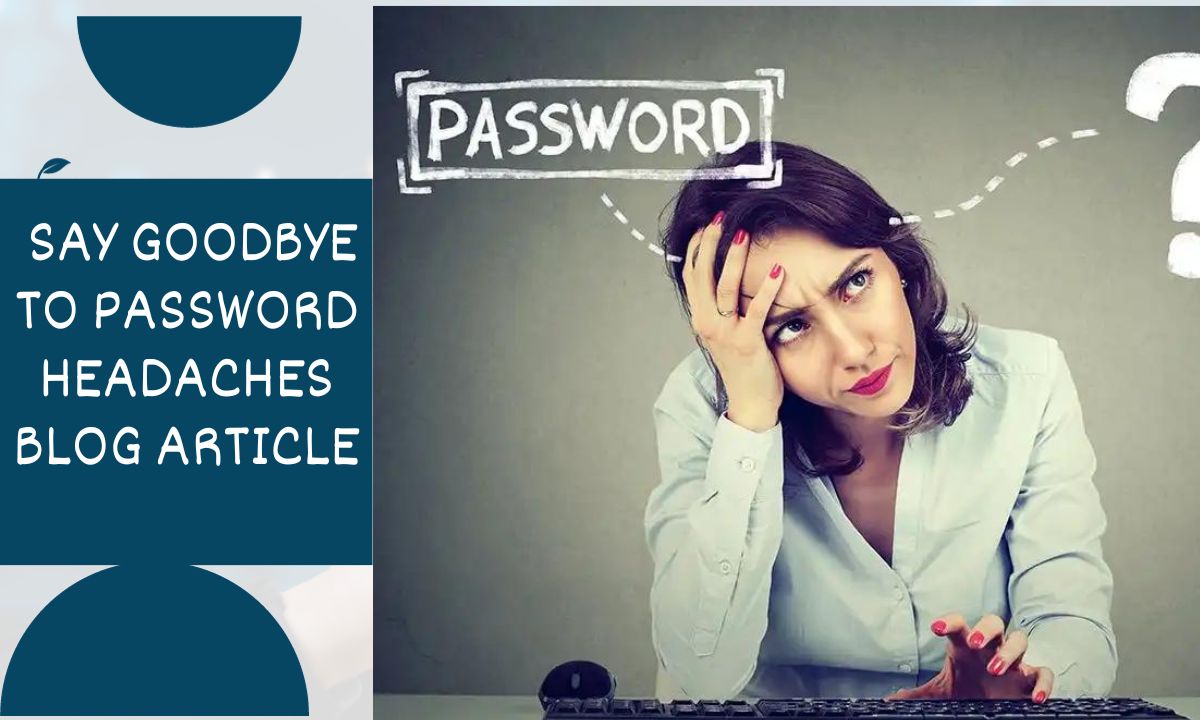The foundation of protecting access to data within an organisation is passwords. Nevertheless, because of their inconvenience, they also have security flaws. The typical end-user may resort to Goodbye to Password Headaches since they have an increasing number of credentials to remember.
They utilise easy-to-remember passwords or the same password for all accounts and applications rather than coming up with strong, one-of-a-kind passwords for each account.
Reusing passwords is dangerous and prevalent. 65% of users acknowledge using the same login information on several websites. A study conducted on identity exposures among Fortune 1000 company employees revealed that 64% of disclosed credentials were repurposed as passwords.
When you combine these results with the reality that lost or stolen passwords account for 80% of all data breaches, we have a significant issue. To put it briefly, one system’s compromised password can be used to access another. What does all of this signify for your company, then?
The following are some of the factors that make password security crucial:
To safeguard your private data, your name, address, Social Security number, credit card numbers, and other personal information can be taken by hackers using passwords that they have obtained to gain access to your online accounts. Then, identity theft and other crimes can be committed using this information.
To safeguard your bank balances. Passwords that have been obtained by hackers can be used to access credit card, bank, and other financial accounts. This gives them the opportunity to embezzle your funds or make false purchases using your identity.
To protect your online accounts. Hackers can use stolen passwords to access your email accounts, social media accounts, and other online accounts. This can allow them to read your private messages, post embarrassing or damaging content in your name, or even impersonate you to scam others.
To protect your devices. Hackers can use stolen passwords to access your computer, smartphone, or other devices. This can allow them to install malware on your devices, steal your data, or even take control of your devices remotely.
The actual danger of reusing passwords
Reusing passwords on corporate accounts is significantly more important than on personal accounts. A cybercriminal might quickly test an employee’s hacked reused credentials against various programmes and systems that could give them access to important data like client information and trade secrets of the organisation, even if it’s just for a basic productivity tool. They might also use ransomware to take down the entire network and stop operations, endangering even more IT resources.
Sadly, a lot of businesses lack a thorough mechanism to stop password reuse, such as one that forbids using weak, easily cracked, or highly probable passwords. Too often, nothing gets done until it’s too late.
The following advice may help you create strong passwords:
- Make use of both capital and lowercase characters, digits, and symbols.
- Make sure your password has a minimum of 12 characters.
- Don’t use everyday terms or expressions like your address, name, or birthdate.
- Never use the same password for several accounts
- To help you establish and keep track of secure passwords for each account, use a password manager.
- Reducing the negative effects of password reuse on security
It is unlikely that end users will independently use best practises for passwords. Convenience permitting, they will:
- Employ standard character composition techniques.
- Use the same password for all of your accounts, including personal and professional ones.
- If they are not made to change their compromised passwords, they should keep using them.
Every one of the aforementioned places your company at risk. Implementing security measures and guidelines is necessary to address the issue of password reuse. Sadly, the most popular fix still exposes us to danger.
Is Two-factor authentication is insufficient.
By requesting the submission of an extra verification method, such as a PIN or push notification, users of multi-factor authentication (MFA) add an extra layer of security. Because an additional factor is needed, it can assist secure an account even in the event of a password compromise.
The issue: MFA is a fantastic method of enhancing security to safeguard end users. However, attackers can still get around authentication systems in a number of ways, particularly if they already know the user’s password.
Using Specops Password Policy to close the security gap on password reuse
IT managers may reduce the risk of hacked and reused passwords and enforce stricter password standards in Active Directory settings using Specops Password Policy.
It is possible to prevent more than 4 billion distinct known and hacked passwords with the Specops Password policy and Breached Password Protection. Passwords are constantly screened for the ongoing risk of password reuse when the continuous compromised detection option is enabled. The credentials gathered by our honeypot network system and recently found password leaks are added to the Breached Password Protection data on a regular basis.
Use Specops Software to enforce strong password security.
Passwords expose IT resources even if maintaining account security requires them. To enforce tougher passwords, don’t wait until after a hack; get in touch with Specops Software right now. Discover how your company may implement stricter password regulations, monitor compromised credentials round-the-clock, offer safe authentication options, and more.
Here are some strong password tips
Apply a passcode. A passphrase is a string of one or more words or phrases, usually with spaces between them. Passphrases can be just as powerful as complex passwords, but they are typically simpler to remember. For instance, “correct horse battery staple” is a considerably stronger passphrase than “P@ssw0rd!”
Make sure your password has a minimum of 12 characters. Your password becomes harder to crack the longer it is. Although 12 characters is a decent place to start, you can make your passphrase much longer if you’d like.
Mix capital and lowercase characters, digits, and symbols in your writing. Your password will be harder to crack the more unique it is. Steer clear of popular terms and phrases, and don’t use the same password for multiple accounts.

